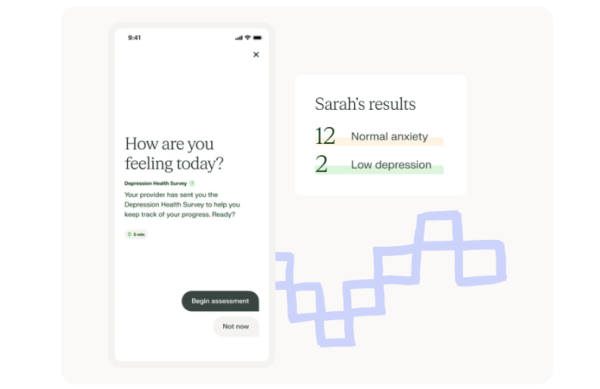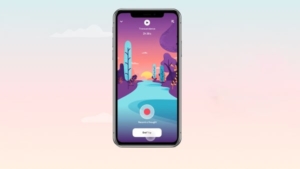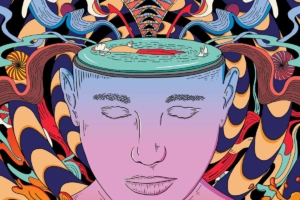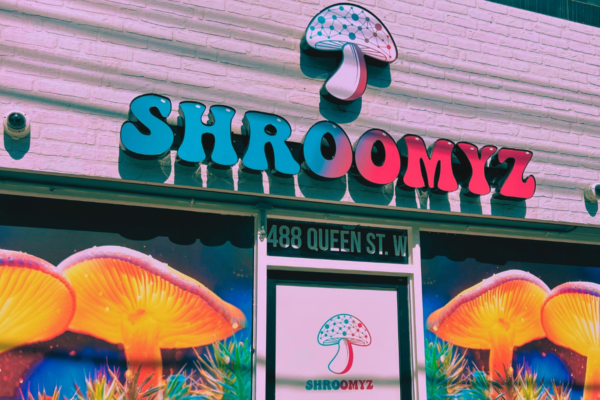
When it comes to pursuing personal growth or transformation, whether it be with the help of psychedelic-assisted therapy or any integrative therapy or coaching, the quality of the relationship between the client and the provider is of the utmost importance. Also known as the therapeutic or working alliance, this bond helps determine whether patients will succeed in meeting their goals.
For coaches and therapists taking a transformational approach to their practices, strengthening the connections with their clients is crucial. Bolstering the available supporting tools that individuals can use in their daily lives is also imperative to long-term progress.
Yuriy Blokhin understands this notion better than most. The founder and CEO of Homecoming, a platform helping coaches and therapists to maximize client transformation, Blokhin has seen firsthand the power of empowering individuals to put in the work for the benefit of their futures.

After helping social media platforms build digital safety nets for those experiencing mental health struggles with incredibly impactful results, Blokhin made it his mission to continue developing solutions that could change lives for the better.
“This was a wake-up call to spend the rest of my career building technology for mental health purposes,” Blokhin told Psychedelic Spotlight.
Blokhin also revealed his deep history with plant medicine, reporting that ayahuasca saved his life a decade ago after his own difficult struggles with treatment-resistant depression. As a result of his personal experience, Blokhin helped found the Heroic Hearts Project, one of the leading nonprofits in the space helping veterans with PTSD access psychedelic medicine.
Blokhin’s unique journey led him to create Homecoming, which is quickly improving how practitioners and patients work together. The platform is also helping to nurture a community of practice allowing providers to share resources, insights, and best practices in the emerging and highly cross-disciplinary field of integrative healthcare.
An Impactful Approach to the Therapeutic Alliance
Research has shown there are three core ingredients universal to all coaching and therapy work: the bond between the provider and client, the mutually agreed upon goals of the sessions, and the plan devised to reach those goals. Together, these 3 aspects form what is interchangeably called therapeutic or working alliance.Homecoming, in essence, is a continuous digital container to hold this working alliance, reinforcing bonds and bolstering accountability.

“There’s a lot of work that happens in between the sessions with the provider, and clients don’t really have any support once they’re out of the room,” Blokhin explained. “That’s where the role of this technology comes in—where these goals, plans, and the opportunity for continuous relationship deepening can happen in between the session with the help of the Homecoming.”
Homecoming offers tools to amplify the momentum established in session and transfers it into the fabric of day-to-day life where lasting integration happens. Clients can download a personalized app, which acts as a conduit for continuous support structure from their provider. There they could include a follow-up with all the specific insights, action items, and resources discussed in a session.
Practitioners can monitor progress and help gently guide the process through the provider portal, assigning tasks, sharing assessments, and offering support.
“The provider can know exactly what’s happening with their client,” Blokhin said of the solution. The client can interact with the provider in between the sessions, in a way that honors the boundaries of a therapeutic relationship, but still offers a way to continue the momentum of the work.”
Homecoming’s platform enhances integration coaching and therapy by filling in the white space between sessions, providing a transformational approach that impacts day-to-day life and extends the effects of a 1:1 session.
Homecoming: Revolutionizing The Integrative Approach
The Homecoming platform also seeks to strengthen the client transformation space by uniting practitioners in a way that allows them to share resources, seek guidance, and increase new client referrals. With therapeutic and coaching resources sharing as a grounding mechanism for collaboration, this capability also bridges the gap between psychedelic practices and more mainstream practitioners to help both sides gain insights and potentially broaden their horizons.
“The vision is to connect the worlds of psychedelics and other practitioners so that by having a shared community of practice, both can exchange and learn from one another,” Blokhin explained.
“This allows more mainstream practitioners to learn and enter the field of psychedelics while assisting people who are underground or strictly focusing on the psychedelic work to learn the best practices and enter a broader community of coaching and therapy and expand their practice.”
He noted that the support for the therapeutic alliance and the establishment of a community of practice will promote individual practice growth by offering tools for measuring and promoting one’s work in a proven and client-friendly way.
“Measure the client relationship,” Blokhin advised. “Measure those results to drive more organic referrals and new business from happier clients who recognize a higher quality relationship with their provider.”
Homecoming has been making waves in the community, attracting the support of Amanda Feilding, Integrated, Evolve, and Bridge Builders eager to invest in the future of mental health care in a mission-oriented manner. They are currently working to expand access to their platform and encourage practitioners to join the waitlist before February 1st to receive one month free and 20% off Homecoming for the first year.





